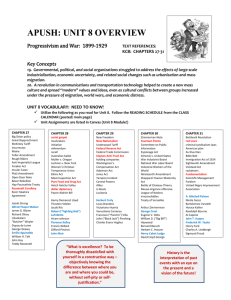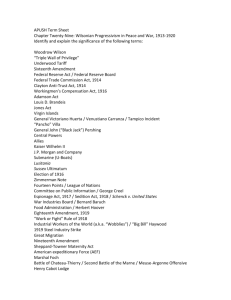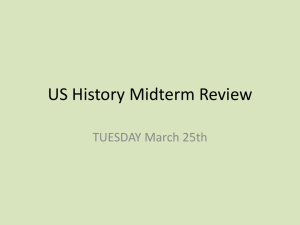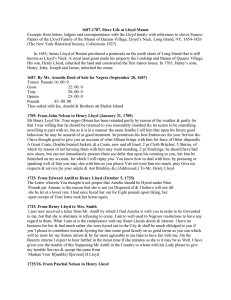Exam 8 - Chapters 28-31
advertisement
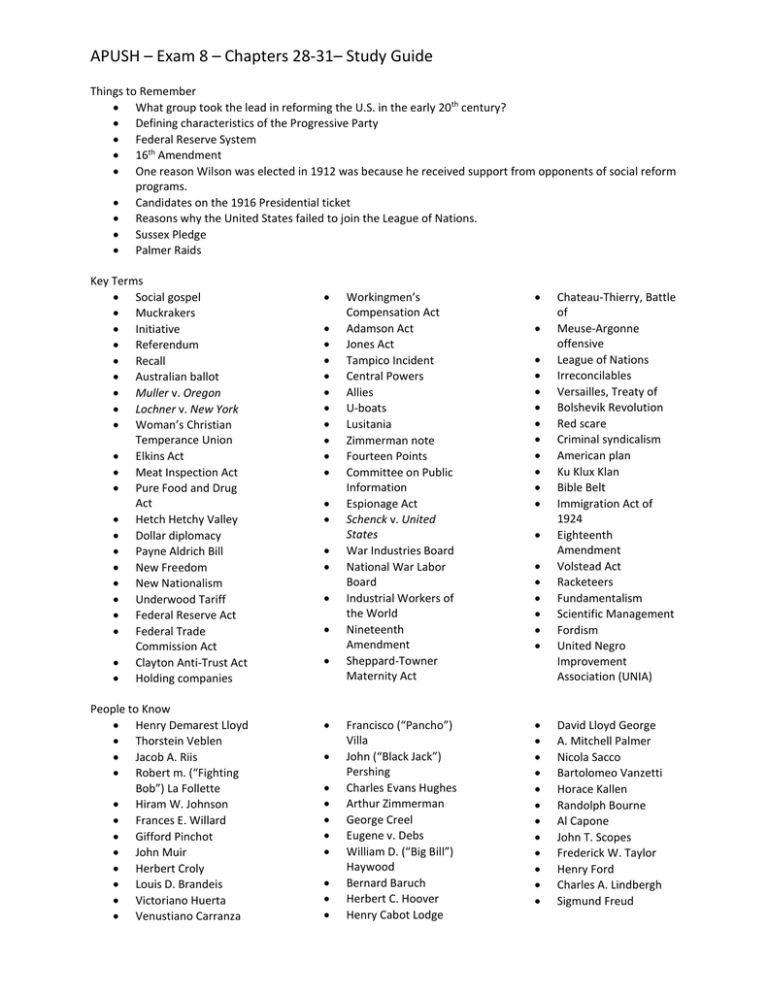
APUSH – Exam 8 – Chapters 28-31– Study Guide Things to Remember What group took the lead in reforming the U.S. in the early 20th century? Defining characteristics of the Progressive Party Federal Reserve System 16th Amendment One reason Wilson was elected in 1912 was because he received support from opponents of social reform programs. Candidates on the 1916 Presidential ticket Reasons why the United States failed to join the League of Nations. Sussex Pledge Palmer Raids Key Terms Social gospel Muckrakers Initiative Referendum Recall Australian ballot Muller v. Oregon Lochner v. New York Woman’s Christian Temperance Union Elkins Act Meat Inspection Act Pure Food and Drug Act Hetch Hetchy Valley Dollar diplomacy Payne Aldrich Bill New Freedom New Nationalism Underwood Tariff Federal Reserve Act Federal Trade Commission Act Clayton Anti-Trust Act Holding companies People to Know Henry Demarest Lloyd Thorstein Veblen Jacob A. Riis Robert m. (“Fighting Bob”) La Follette Hiram W. Johnson Frances E. Willard Gifford Pinchot John Muir Herbert Croly Louis D. Brandeis Victoriano Huerta Venustiano Carranza Workingmen’s Compensation Act Adamson Act Jones Act Tampico Incident Central Powers Allies U-boats Lusitania Zimmerman note Fourteen Points Committee on Public Information Espionage Act Schenck v. United States War Industries Board National War Labor Board Industrial Workers of the World Nineteenth Amendment Sheppard-Towner Maternity Act Francisco (“Pancho”) Villa John (“Black Jack”) Pershing Charles Evans Hughes Arthur Zimmerman George Creel Eugene v. Debs William D. (“Big Bill”) Haywood Bernard Baruch Herbert C. Hoover Henry Cabot Lodge Chateau-Thierry, Battle of Meuse-Argonne offensive League of Nations Irreconcilables Versailles, Treaty of Bolshevik Revolution Red scare Criminal syndicalism American plan Ku Klux Klan Bible Belt Immigration Act of 1924 Eighteenth Amendment Volstead Act Racketeers Fundamentalism Scientific Management Fordism United Negro Improvement Association (UNIA) David Lloyd George A. Mitchell Palmer Nicola Sacco Bartolomeo Vanzetti Horace Kallen Randolph Bourne Al Capone John T. Scopes Frederick W. Taylor Henry Ford Charles A. Lindbergh Sigmund Freud
